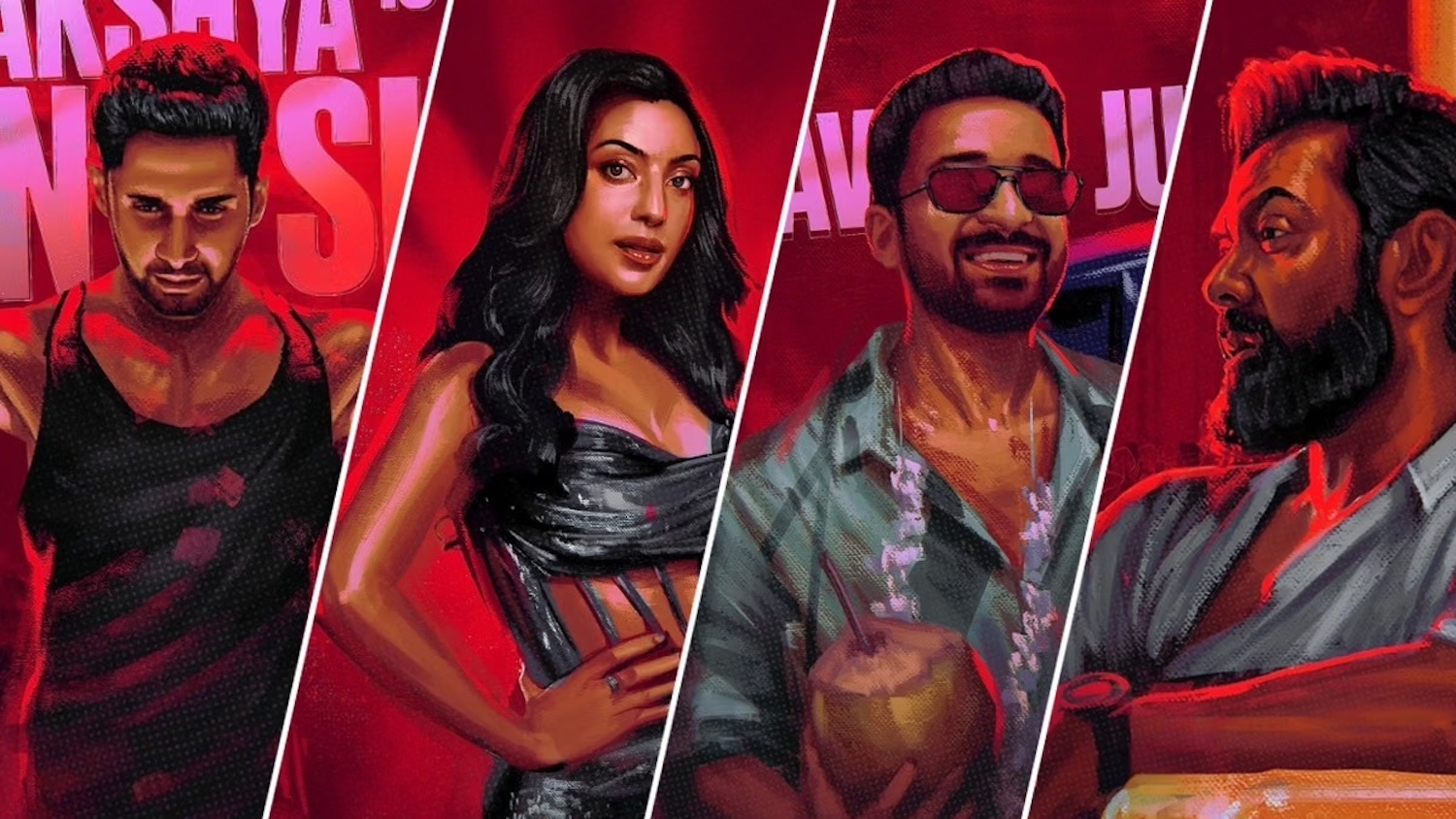


15 years is a long time. When we ‘launched’ (isn’t there a better word for events less dramatic than going into outer space?) on July 28, 2008, iPhone was just a year old, and BlackBerry was still the go-to smartphone. UPA was in the last year of the first of its two terms in Delhi. Barack Obama was still six months away from becoming the first African-American President of the United States. India hadn’t won an individual Olympics gold. Abhinav Bindra would go on to do that two weeks later.
Maybe it's the rains, or just the round figure of 15. But I feel persuaded from within to write this somewhat-indulgent note on our journey of 15 years. Hope you enjoy reading it!
Our first two years (2008-2009) were largely focused on what is now called linear television. We started as a research company specializing in the Indian media & entertainment (M&E) industry, and the television industry was the most ‘corporatized’ of the various sectors within the M&E industry. It also helped that I had worked in the sector for nine years, and knew a few people along the way. Our first set of clients were a mix of channels across genres, but we found great traction with the Hindi GECs in our early months itself. There seemed a lot of dissatisfaction with how research has been unable to predict genre trends, and particularly, had fallen short of predicting if a show has a potential to be an enduring hit. Our TV content testing tool, Ormax True Value, re-imagined how we should test content. Its core insight (that audiences cannot be directly asked if they like or dislike something new that’s shown to them) has served us well over the years, across theatrical and streaming categories as well.
Even as linear television struggles in a very different world that’s both digital and distracted, it’s a category that we continue to build deep insights into, having tested more than 330 programs/ program concepts, and having tracked launch campaigns and character popularity for more than 14 years now. Whether it is this piece on character popularity and its impact on a show’s fate, or this one on a somewhat non-intuitive ‘formula’ behind hit GEC fiction shows, it’s a category we continue to be fascinated by.
Our theatrical business began to get shape in 2010. It was a very different challenge vis-à-vis the television industry. Almost no one in the film industry, barring a couple of international studios, had any prior exposure to audience analytics and research. The problem was not just of an unrecognized need. Many who seemed half-convinced to try some of our offerings out were not sure which budget the spends would come from. The launch of our campaign tracking tool Ormax Cinematix in 2010 received mixed response. But when we introduced FBO (First-Day Box Office forecast) to the tool in September 2012, it generated significant interest, with the number of subscribers zooming from about 5 to more than 15 within a few months. Ormax Cinematix continues to be our flagship offering for the theatrical business for over a decade now, and one that’s always a source of conversations, including some not so flattering ones (See this explainer for more on FBO).
Through the growth of Ormax Cinematix/FBO, we learnt something that continues to guide us in our work across domains, till date: Speaking the language of the business (box office, TV ratings, et al) makes a research company more relevant in business decision-making. Traditionally, research companies have struggled to make it to the boardrooms, either in person or via their insights. Perhaps because they are too inward in their approach, often speaking a language that only they, or a few in marketing, understand. As we learnt this all-important truth, we initiated our transformation from a research firm to one that reveals insights that can influence businesses in the Indian M&E industry. Today, we see ourselves as a knowledge company. For many, the difference may only be semantical. But we take the distinction between research and knowledge very seriously. The pursuit for knowledge is never-ending, especially in an industry that’s ever-evolving, and in an audience that’s large, disparate and complex. The Insights section of our website, which has 87 published stories/reports as on date, is a testimony to our commitment to this pursuit.
Our film testing work generates great interest all the time (“Which is the last film you tested?” may be on the top of the list of the most-asked questions to us). It dates back to 2010, but got a major impetus when we started testing more high-profile films, such as Shah Rukh Khan’s Ra.One and Don 2 (both 2011). Over the years, we have tested over 375 films or film scripts, across genres and languages. Directors and producers have gone on record to speak about how they have benefited from this part of our work. From being seen as “interfering in the creative process” initially, we are now seen as enablers who bridge the gap between creativity and business, while respecting both equally. On the way, we have managed to convert some of the non-believers (of analytics & audience research) into skeptics, and some of the skeptics into believers. It has been an immensely satisfying journey.
But the journey is also an ongoing one. Over the last two years, we started offering our services to producers across various Indian languages. Till then, our language work was largely with national companies that have stronger multi-language presence, such as Disney, Viacom, Zee, etc. But the local industries of each language remained untapped. About a year ago, we removed the word “Regional” from our lexicon. We felt the word is condescending and grossly inaccurate, given the plurality of our country, and of its entertainment landscape. As we begin to make small but significant inroads in the language markets, we stay committed to them being treated at par with Hindi content. For example, this piece explains why we cannot look at “South Indian Cinema” as a monolith, and why the Malayalam film industry, in particular, is so distinctive.
Our foray into the streaming (or OTT, as it’s called, only in India!) space is more recent, dating back to 2016-17. Unlike the television and the theatrical sectors, we faced a different challenge in this category: The absence of centrally-available performance data. Despite all their issues related to transparency, TV ratings and box office numbers eventually form the foundation of their respective sectors, and also, of our work in these sectors. But in streaming, we have no equivalent. As we waited out the pandemic in 2020 and 2021, we spent considerable time and resources envisaging a future where we are the central knowledge providers in the Indian OTT space. Today, we are estimating viewership, audience size, subscriber bases, the works. If you glance through the Insights section on this site, you will find several pieces that highlight such work. It has enabled us to build new narratives in the streaming space, such as this piece on how geographical nuances are not fully understood in the originals business so far, or this piece on the economics of box office vs. streaming films, which received great appreciation for its nuanced understanding of the two categories, and their interplay.
Studying trends that are more layered, and go beyond simplistic, popular journalistic narratives (“OTT will kill theatres” is on the top of my list of the problematic ones) is an area of personal interest. Whether it is this recent piece on the role of cinema-going in the current entertainment ecosystem of the Indian audience, or this one on the success of The Kashmir Files last year, I continue to find myself gravitating towards this ‘cause’. The power of audience insights in shaping industry thinking is undeniable, especially in a (post-pandemic) world where more and more people are willing to accept they know very little.
But we must apply that yardstick to ourselves too. I keep reminding my team that the pursuit of knowledge and expertise is endless. That we cannot ever know enough. That we must be humble in our acceptance of the infinite expanse of knowledge. And whole-heartedly so.
As we mature as an organization, we have also found ourselves gravitating towards topics that go beyond business interests. Inclusivity is one such area. We have published two editions of the O Womaniya! report, in partnership with Film Companion. Our team members often write research pieces of this nature, such as this one on the ‘gendered ways of stardom’, or this one that examines the ROI of female-protagonist films. Of course, inclusivity is not about gender alone, and in the coming years, we have more in the pipeline on this front.
As we complete 15 years today, more than a sense of accomplishment, I feel a sense of progression. It’s like we have traveled so far, but there are many new places to go to as well. And a sense of gratitude… to the hundreds of people who have been with us over these years, as team members, as business partners, as evangelizers, as critics, as skeptics. Each one of you has shaped this company, to where it is today. And it’s for us, the current team at Ormax Media, to take it to new frontiers, where the power of knowledge becomes an omnipresent idea, in an industry that all of us are so passionate about.

India's CTV growth story in numbers
10 key data points from The Ormax OTT Audience Report: 2025, that showcase India's staggering Connected TV (CTV) growth story in numbers

The India Box Office Report: September 2025
Led by They Call Him OG and Jolly LLB 3, September 2025 emerges as another good month at the India Box Office, with gross collections of ₹1,035 Cr

The Ba***ds Of Bollywood: Raising the marketing bar
Ormax Stream Track data reveals that Netflix’s 2025 release The Ba***ds Of Bollywood ranks among the strongest non-franchise streaming launches post-pandemic, second only to Farzi
Subscribe to stay updated with our latest insights
We use cookies to improve your experience on this site. To find out more, read our Privacy Policy